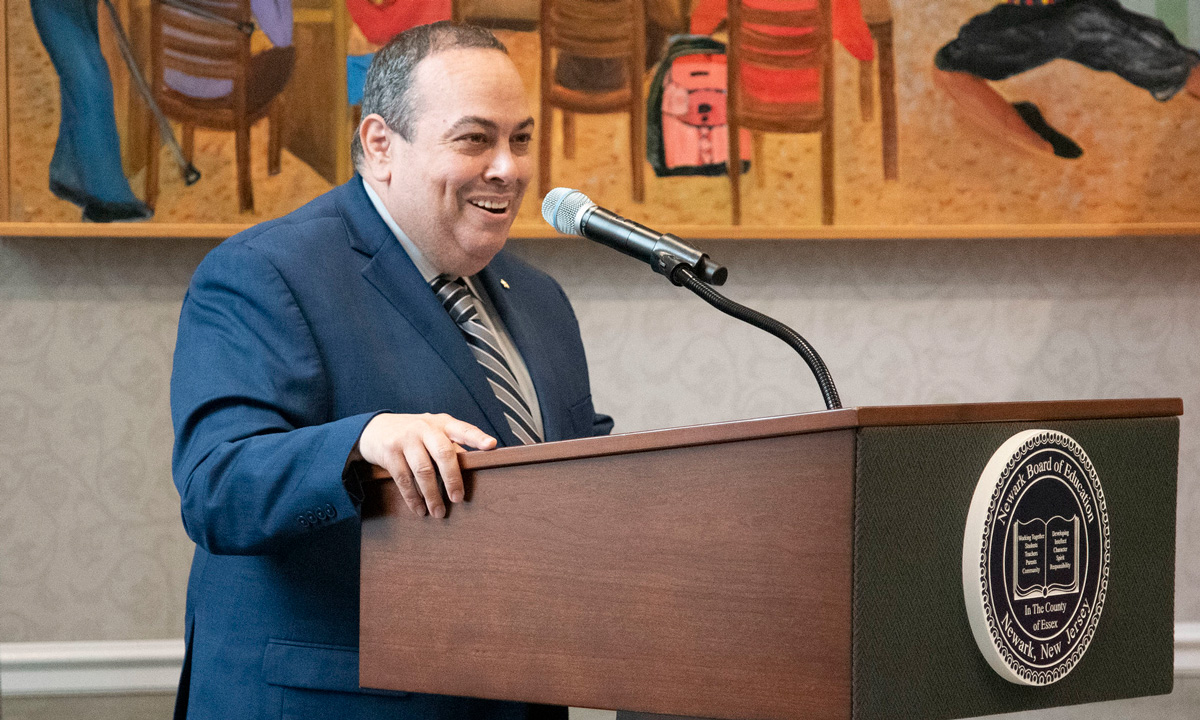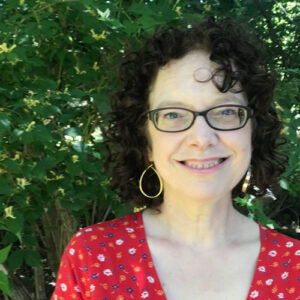How Newark’s Universal School Application Split in 2 — and What to Do About It
Waters: Charter school leaders hope district will add its 63 schools to new platform after lauded decade-old system fell apart.

Get stories like this delivered straight to your inbox. Sign up for The 74 Newsletter
For almost a decade, Newark Public Schools, New Jersey’s largest district, was celebrated for its universal enrollment system that gave parents an easy way to rank their top choices among the city’s district and charter schools. Last year, that collaboration fell apart. The nonprofit New Jersey Children’s Foundation quickly devised a new online enrollment platform for Newark’s charter schools, which educate 36% of the city’s 55,000 public school students. Now, foundation Executive Director Kyle Rosenkrans and his team hope the district will add its 63 schools to the platform and restore a partnership that many believe has led to improved equity, access and achievement for Newark students.
Much rides on that potential detente.
A little history: In 1995, the state took over Newark’s school system after an investigation detailed “low student test scores, high dropout rates, questionable expenditures of public funds, and crumbling buildings with health and safety hazards.” Over the next 15 years, a series of state-appointed superintendents shuffled through while student academic growth stagnated. Then, in 2011, then-Gov. Chris Christie appointed Cami Anderson, who saw parents as the ultimate arbiter of what is best for their children, recognized the draw of the city’s high-performing charter sector and inaugurated the district’s universal enrollment system, called Newark Enrolls.
Sure, that first year was glitchy. But Anderson’s successor, Christopher Cerf — the last state-appointed superintendent before the district began the transition back to local control in 2018 — noted that the improvement in student outcomes in both district and charter schools is “directly attributable to the district’s decision to empower parents with public school choice and to focus relentlessly on the twin values of school performance and equitable access to quality options.”
When Roger Leon, the first locally appointed superintendent in a quarter-century, took over the following year, he declared himself a fan of the charter partnership, telling school board members, “it’s our responsibility to make sure that whatever [school] parents choose, they get.” Yet, in an early sign of Leon’s disaffection for the charter school sector, one of his first acts as superintendent was to fire the head of Newark Enrolls and her assistants.
In 2019, despite a Memorandum of Understanding with the city’s charter schools, the district unilaterally shut down the enrollment portal for three months to install a new system. It also shuttered a family support center that many parents relied on. All parents, whether new to the district or unhappy with their child’s school, could enroll their children only by going to the Central Office during specified hours. The next year, the rules changed again: the district said it would grant transfers only in “certain cases, such as when a child requires a school with a special education program.”
Then came COVID-19. In early 2021, with schools and government offices closed, the district decreed that parents choosing charters for their children must provide proof of residency in order to even start an application. Attendance officers were sent to their homes, a measure Rosenkrans called “strong-armed, invasive tactics toward parents.” Families were furious.
An enrollment system that a Columbia University study lauded for adhering to principles of “choice, access, community, equity, reliability, ease and transparency,” had devolved into one that was separate and unequal. Newark’s charter school leaders pulled out, ready to go back to the each-school-on-its-own model that required parents to fill out multiple applications.
Then the foundation stepped up.
Having recently launched My Schools Newark, a platform that gives parents detailed information about the city’s 184 district, charter, private and parochial schools, the foundation contracted with a company called Avela to create a Newark Common App, based on parent focus groups and surveys. Though Leon and the Newark School Board declined Rosenkrans’s invitation to join this new third-party-run system, the app launched seamlessly this past year. Over 3,500 Newark families participated, taking advantage of a centralized application, lottery and waitlist with an emphasis on equity and access. The algorithm weights the lottery to increase enrollment for homeless and displaced students, special education kids, English learners and those who qualify for free school lunch. This year, the largest number of families applied for kindergarten slots, and, of those, 98% were matched to the first school of their choice. Across all grades, 83% of families received one of their top three choices.
The foundation hasn’t given up on its ultimate goal of renewing the alliance among all public schools in the city, and Rosenkrans says he would happily hand over Avela’s platform to another third party if that would make the district more comfortable.
Even Mayor Ras Baraka — who made his initial campaign in 2014 a referendum on Anderson and is rumored to be contemplating a gubernatorial run — favors restoring the partnership.
Leslie Comesanas, the foundation’s director of family and community support and the head of Newark Common App, told me, “If Superintendent Leon would pick up the phone and say, ‘Let’s jump in with you,’ we would be thrilled. That’s what’s best for families.”
Get stories like these delivered straight to your inbox. Sign up for The 74 Newsletter

;)
